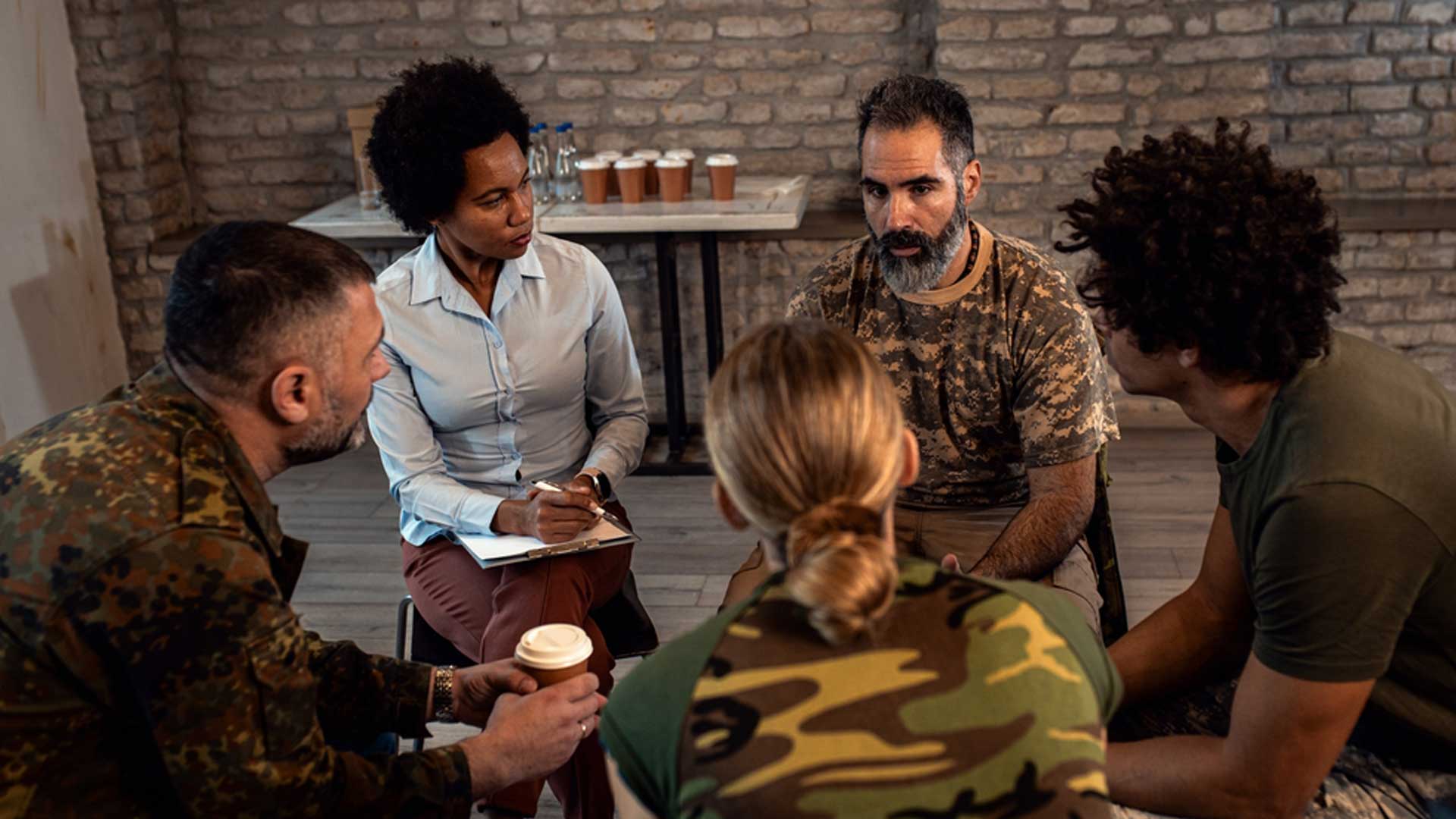Managing a change of life for veterans to a new lifestyle can be a significant adjustment for all veterans, but it’s more challenging for those with wounds or disabilities. These individuals often face complex challenges that require specialized support and resources.
1. Leverage Support of Veteran Care Non-Profit Organizations

Leveraging the support of veterans charitable organizations is essential for accessing tailored resources, professional support, and a supportive community. These VSOs provide dedicated assistance addressing physical, emotional, and practical challenges veterans and their families face.
Veteran care networkslike Wounded Warriors Family Support offer dedicated services such as caregiver respite services, tailored family retreats, and facilitating access to wheelchair-accessible vans.
By utilizing such professional services, veterans can improve their quality of life, gain new skills, and achieve greater independence while connecting with a community that understands and supports their unique experiences.
2. Build a Strong Support Network
A robust network is vital for navigating the challenges veterans encounter. Having a supportive family and friends provides essential emotional support and practical help, offering a foundation of stability and companionship.
Also, joining the Wounded Warrior Project can help expand your network with other like-minded veterans.
Such supportive groups link veterans with peers with similar experiences, providing a space for mutual support and advice.
Furthermore, resources such as Apprenticeship.gov can help veterans get into new careers by offering apprenticeship opportunities and career development programs.
By integrating these support systems, you create a comprehensive network that addresses life’s emotional and practical aspects after military service.
3. Adapt to Your Environment

Finding ways to adapt to your environment is essential for preparing yourself for survival and easing your new way of life.
For example, undertaking home modifications that counter your mobility limitations or other accessibility features can significantly improve safety and independence in daily activities.
A reputable veteran care organization like Wounded Warriors Family Support can assist in accessing mobility aids and other essential modifications, ensuring that your home is better suited to your needs.
Also, exploring assistive technology devices—such as adaptive keyboards, voice-activated controls, or mobility aids—can further enhance your ability to manage daily tasks and improve your overall quality of life.
Incorporating these adaptations creates a more accessible and supportive living environment, enabling greater comfort and independence.
4. Learn New Career Skills

Developing new career skills and interests is crucial for wounded veterans as they adapt to a new way of life.
The transition can be daunting, but identifying and nurturing skills that align with new job opportunities can lead to personal and professional growth.
Taking advantage of job training programs by the VA or other certified organizations provides hands-on experience and certifications that facilitate a successful move into the civilian workforce.
Also, pursuing further education or relevant training can improve job prospects and open doors to new opportunities.
Exploring new hobbies or interests can also play a vital role in offering a positive outlet and helping to maintain a sense of purpose and happiness. By focusing on these strategies, veterans can effectively navigate their transition and build a fulfilling new chapter.
5. Celebrate Each Positive Move
Taking note of your achievements in your transition journey, however small, is crucial for maintaining motivation and a positive outlook. Recognizing and celebrating your accomplishments reinforces your resilience for progress and boosts self-esteem.
Each milestone deserves acknowledgment, from completing job training programs to adapting to new routines. That can significantly enhance your confidence and drive.
Also, practicing gratitude by appreciating what you can do and the support you receive from others fosters a positive mindset and strengthens relationships.
Reflecting on and expressing thanks for the resources and people who aid your journey facilitates acceptance and cultivates emotional resilience.
Integrating these practices creates a supportive environment that highlights your achievements and promotes a fulfilling and optimistic approach to life.
In conclusion, a strategic approach to transitioning and starting a new way of life is crucial for veterans wounded in combat and their families.
Identifying a reliable non-profit veteran organization like Wounded Warriors Family Support is vital to optimizing available resources and knowledge, ensuring a streamlined transition and empathetic care. The strategic alignment supports a smoother adjustment and enhances overall well-being and stability.







